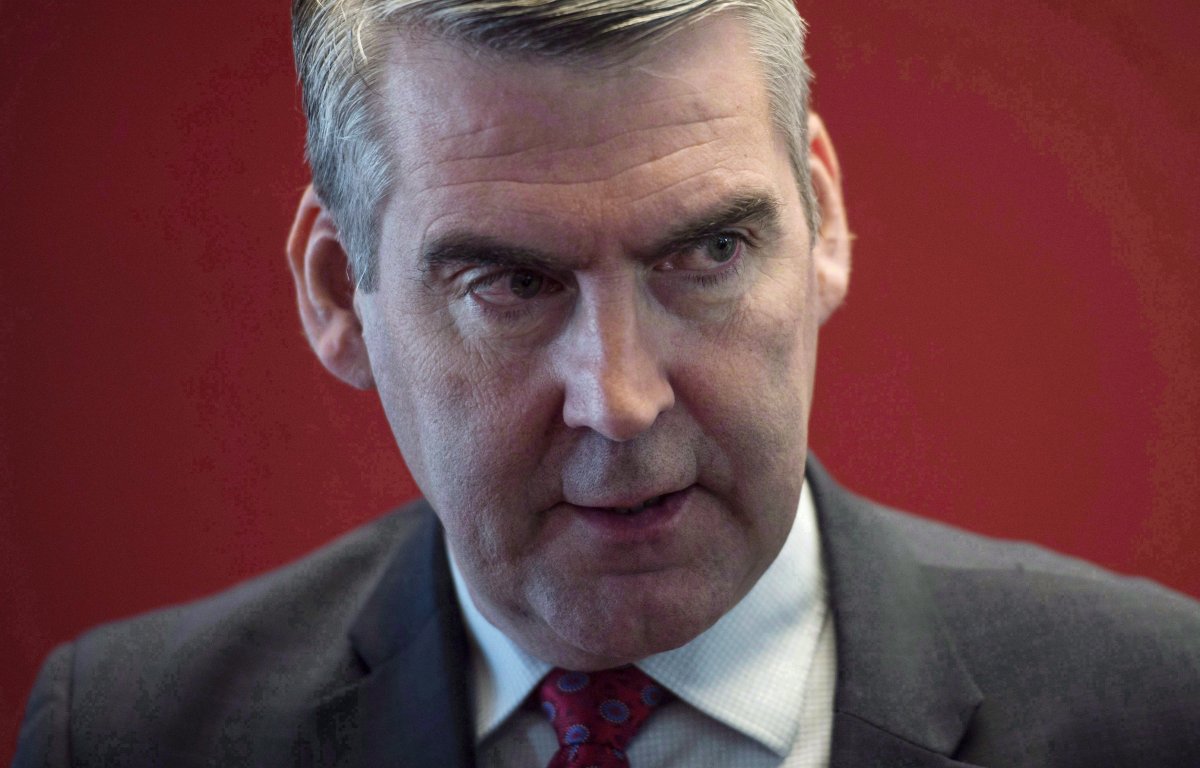
On Tuesday, nearly five years later and with no follow-through on that commitment, he says the pledge was a “mistake.”
“I ran on a campaign…was it in my platform? I didn’t run on that,” he said.
But experts say that McNeil’s failure to institute meaningful reforms in government transparency five years after taking office indicate a larger failure to take government transparency seriously.
READ MORE: N.S. privacy commissioner says Health Department’s response to ‘snooping pharmacist’ disappointing
When governments choose not to share the information openly; businesses, politicians, journalists and academics can request information through the province’s Freedom of Information and Protection of Privacy (FOIPOP) Act or access to information legislation.
The Office of the Information and Privacy Commissioner functions as an independent ombudsman for the legislation, being able to recommend possible resolutions to disputes under the legislation.
But since the OIPC does not have order-making power, government bodies are not obliged to follow her recommendations and can ignore them if they wish. It’s an issue that should be resolved, said Sean Holman, a professor of journalism at Mount Royal University and freedom-of-information researcher.
A failure to follow through

Get breaking National news
In 2013, McNeil, the then-Opposition leader, responded to a report by the Centre of Law and Democracy that recommended a complete overhaul of the province’s freedom-of-information policy.
“If elected Premier, I will expand the powers and mandate of the Review Officer, particularly through granting her order-making power,” McNeil wrote.
On Tuesday, McNeil said that commitment was a mistake.
“I think what most Nova Scotians are grateful for, I’m not stubborn in my ways and I realize I made a mistake, I acknowledge it,” he said.
He said that he thinks the office is functioning “properly” the way it is and that it has all the power it needs.
WATCH: N.S. cabinet minister, bureaucrats regularly used minister’s private email to send confidential information

Catherine Tully, the province’s current privacy commissioner, has issued her own calls to update the legislation including giving her order-making power. She has said that legislation written in 1993 is outdated for the current digital world.
Holman says making promises of creating a more transparent government while in the Opposition, only to fail to follow through after forming government, isn’t something restricted to Nova Scotia.
“It’s easy to want more openness and transparency when you’re outside government. But once you get into government, the advantages of being secretive, of being opaque, are often too great for a government to resist,” Holman said.
“Even if its contrary to what they promised.”
READ MORE: Halifax Water says they won’t disclose information despite ombudsman’s recommendation
Touting Nova Scotia as most transparent province is ‘political bumf’
McNeil has touted his government as creating the “most open and transparent province in Canada.” One expert at the Centre of Law and Democracy described that claim as “patently false.”
“It’s political bumf. On what basis is [he] making that claim?” said Toby Mendel, executive director of the Centre of Law and Democracy, an organization which specializes in human rights and government transparency.
Holman agrees that Nova Scotia leaves much to be desired if it wants to be described as transparent.
Global News has reported on multiple examples of ministers failing to follow guidelines set out by the OIPC regarding the use of private email for government projects, while McNeil has attempted to skirt privacy laws by phoning staff instead of sending emails.
But the provincial government says it remains committed to improving how it conducts itself, with a statement from the Office of the Premier saying that the government believes in the principle of transparency.
“We are committed to improving government’s openness and transparency, and will keep moving in that direction while being mindful of not disclosing sensitive information that would have an adverse effect on Nova Scotians,” the statement read.
The office pointed to its work on an open data portal, posting eligible FOIPOP requests and responses online and posting senior officials’ expenses online as some of their accomplishments in making the government more transparent.
Holman says that although those have value they aren’t true indications of commitment to transparency.
“What the public really needs is information on why the government does what it does,” said Holman.








Comments